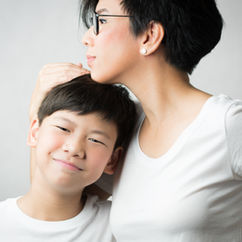What is domestic abuse?
Domestic abuse is when someone tries to control, threaten, degrade, or hurt their current partner, ex-partner, or family members who are over 16 years old. Whether it happens once or multiple times, or whether you were made to believe it was your fault, domestic abuse is never acceptable !!!

Types of abuse
Coercive control is a pattern of behaviour where someone uses threats, intimidation, and manipulation to dominate another person’s life without necessarily using physical violence.
Signs: This may include isolating someone from friends and family, monitoring their movements or phone, controlling what they wear or eat, or making them feel constantly watched or criticised.
Impact: Over time, coercive control can strip away a person’s independence, self-worth, and ability to make decisions. Survivors often feel trapped, confused, and fearful, even if no physical harm has occurred.
Who can be affected?
Domestic abuse can happen to anyone, regardless of age, gender, sexuality, race, religion, background, or ability. It happens in all communities. Women are more likely to experience repeated and severe forms of abuse, but men can be victims too. LGBTQ+ people may face abuse that’s not recognised or taken seriously. Disabled individuals, older adults, and people with insecure immigration status may be especially vulnerable, especially if they depend on the abuser for care, housing, or language access. Abuse does not discriminate and neither should support.

Why do people stay?
Leaving an abusive relationship is never as simple as “just walking away.”
Survivors may fear violence, struggle financially, worry about children, or feel pressure from family or faith communities. Some stay because they hope their partner will change. Others may not recognise what they’re going through as abuse. Many feel ashamed or afraid they won’t be believed. Understanding these barriers allows us to respond with compassion, not judgement, and offer support that’s safe and realistic.
Legal Rights and Protection
In the UK, survivors of domestic abuse have the right to be protected by the law. The Domestic Abuse Act 2021 recognises many forms of abuse, including coercive control. You may be able to access:
-
Non-molestation orders (to stop someone from harming you)
-
Occupation orders (to stay in your home safely)
-
Police protection notices
-
Legal aid or advocacy services There are also protections for children, people on spousal visas, and survivors needing emergency housing. Support workers or legal professionals can help you explore your options safely.


